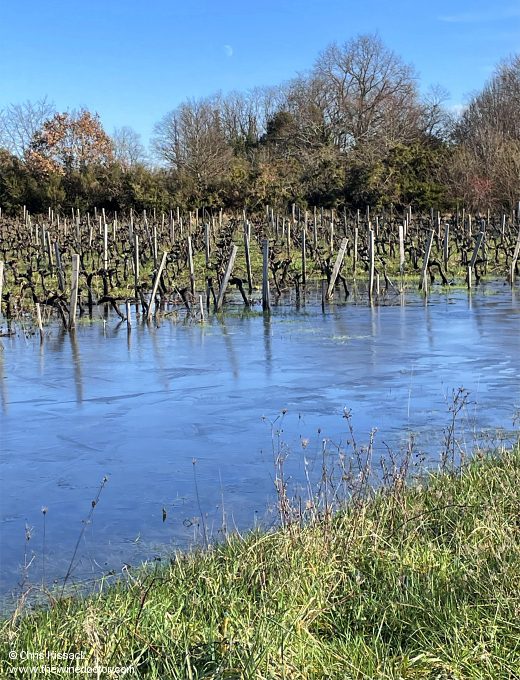Bordeaux 2024: The Weather
For many years I have opened my primeurs reports with a detailed summary of the growing season which, in recent vintages, was sprawled across at least four pages, not including Monsieur Propriétaire’s adventures. I have come to believe that subscribers would rather have something rather more digestible, and so this year I open my Bordeaux 2024 tasting reports with this more concise guide to the weather during 2024, and how it influenced the style and quality of the wines.
The start of the 2024 growing season was dogged by rain; after the harvest in 2023 the heavens opened, and it continued with little respite until mid-July, breaking all records. The volume of rain recorded during the first six months of the year was close to the average annual total. The effects of this were several; first the soils became saturated with water, so that even when the weather eventually turned dry in summer, it took weeks and weeks to dry out the soils (more on that in a moment).
Secondly, and more immediate, the persistent humidity raised the mildew pressure to new levels, and it started earlier than ever. Conventional wisdom states that mildew will not attack a vine until it has at least three leaves out, but in 2024 mildew rewrote the fungal rule book (I assume there is one), with mildew even on early buds, and later it appeared on flowers and the new fruits as well. Whether organic, conventional, or something in between, vineyard managers needed to begin spraying at an early date, ideally in late-March, which is previously unheard of.
Those who recognised the risk and who were therefore proactive with mildew treatments stood a chance, and with regular sprayings (between 20 and 30 treatments – a very high figure – was the norm in 2024) the problem could be controlled. Those who were merely reactive missed the starting gun, and spent the next three months trying to catch up. Some paid the price with disastrous loss of yields. Of the many properties in the region now holding organic certification a small number felt the need to come out of organics, relinquishing their organic status in the process, in order to protect their vines using more efficient synthetic treatments rather than just copper sulphate.
When you see the state of some vineyards early in the year, it is not difficult to understand why the rainfall was a problem. Intensive treatments were required, but it was impossible to access some vineyards.

Please log in to continue reading:
